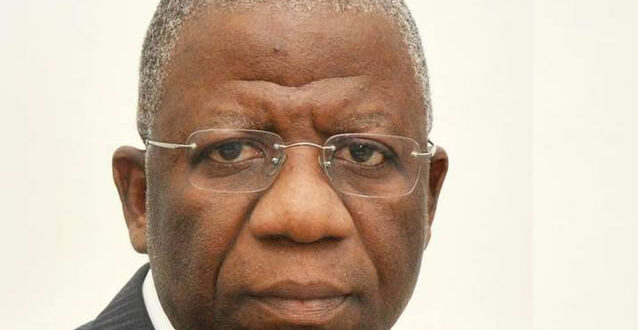The Federal Government has announced that it will not retrench workers in the course of implementing the 12-year-old Steve Oronsaye report, which aims to maximize the effectiveness and efficiency of agencies and reduce costs.
During a recent Ministerial Press Briefing, Information and National Orientation Minister, Alhaji Mohammed Idris, emphasized that the primary goal of the implementation is to improve service delivery and reduce costs, not to throw people into the labour market.
The implementation of the policy will involve merging, subsuming, and scrapping agencies with similar functions, as recommended by the Oronsaye panel in 2012.
The panel identified 541 parastatals, commissions, and agencies and recommended that 263 of these be reduced to 161, 38 agencies be abolished, and 52 be merged.
The National Emergency Management Agency will be merged with the National Commission for Refugee Migration and Internally Displaced Persons, while the Directorate of Technical Cooperation in Africa will be merged with the Directorate of Technical Aid and function as a department in the Ministry of Foreign Affairs.
The Infrastructure Concession Regulatory Commission will be merged with the Bureau for Public Enterprises, and the Nigerian Investment Promotion Commission will be integrated into the Nigerian Export Promotion Council.
The National Agency for Science and Engineering Infrastructure will now be one with the National Centre for Agriculture Mechanisation and Project Development Institute.
Additionally, the National Biotechnology Development Agency will be amalgamated with the National Centre for Genetic Resource and Biotechnology, the National Institute for Leather Science Technology with the National Institute for Chemical Technology, and the Nomadic Education Commission with the National Commission for Mass Literacy, Adult Education, and Non-formal Education.
In a similar vein, the Nigerian Army University, Biu, Borno, will now function as a faculty within the Nigerian Defence Academy, while the Air Force Institute of Technology will become a faculty of the Nigerian Defence Academy.
The Service Compact with Nigeria (SERVICOM) has been subsumed to function as a department under the Bureau for Public Service Reform, while the Border Communities Development Agency becomes a department at the National Boundary Commission.
The National Salaries Income and Wages Commission has been subsumed into the Revenue Mobilisation and Fiscal Allocation Commission.
The Institute for Peace and Conflict Resolution was subsumed under the Institute for International Affairs, and the Public Complaints Commission under the National Human Rights Commission.
The Nigerian Institute for Trypanosomiasis has been absorbed into the Institute for Veterinary Research, and the National Medicine Development Agency has been integrated into the National Institute for Pharmaceutical Research and Development.
The Niger Delta Power Holding Company has been relocated to the Ministry of Power, the National Agricultural Land Development Agency to the Federal Ministry of Agriculture and Food Security, and the National Blood Service Commission has been converted into an agency and relocated to the Federal Ministry of Health.
The Nigerian Diaspora Commission has also become an agency at the Federal Ministry of Finance.
The implementation of the Oronsaye report is a crucial step towards streamlining Nigeria’s public service and reducing the cost of governance.
Subscribe to the Advocate News letter and receive news updates daily in your inbox.
 Advocate.ng Latest news update on politics, entertainment, sport and more
Advocate.ng Latest news update on politics, entertainment, sport and more




